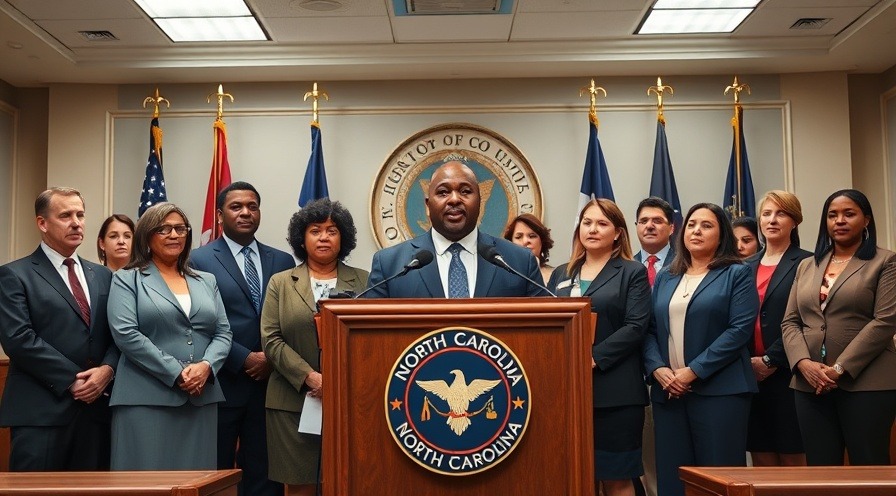
Urgent Reforms in North Carolina's Child Welfare System
In North Carolina, the issue of child welfare has taken center stage, particularly within the foster care system. Lawmakers are stepping forward to propose reforms that many advocates consider long overdue. Recent discussions have highlighted profound deficiencies, including a system overwhelmed by demand while struggling to maintain the quality of care for vulnerable children.
A Hidden Crisis in Foster Care
Many are unaware of the challenges faced by children in the foster care system—as there are currently over 10,000 children in foster care in North Carolina alone. Reports indicate a chronic shortage of available foster homes, leading to overcrowded facilities and placement instability that can severely impact children's emotional and psychological well-being.
The Legislative Response
Recognizing these pressing issues, the North Carolina House of Representatives has introduced measures aimed at reshaping the foster care landscape. They emphasize increasing funding to recruit and retain foster families, improving training for caseworkers, and enhancing preventative services to reduce the number of children entering the system in the first place. Proponents argue that these changes could significantly improve the quality of care for children, ensuring more stable and supportive home environments.
Revisiting Historical Context
This reform push reveals a deeper narrative involving the evolution of child welfare policies in the U.S. Over the past decades, states have grappled with legislative approaches to balancing the protection of children with their rights to family preservation. In North Carolina, this struggle has only intensified with the rising complexities of cases seen in today's child welfare environment.

Broader Implications and Future Trends
The proposed reforms are not merely administrative changes; they stand to influence how child welfare systems operate nationwide. If successful, North Carolina could serve as a model for other states facing similar challenges. The potential increase in resources and improved outcomes for children point towards a need for a nationwide reevaluation of child welfare practices.
Hearing Voices from the Community
Community advocates and current foster parents underscore the necessity of these changes. They suggest that the proposed reforms must be spearheaded by real experiences from those involved. Direct input from foster families could guide better policy-making and implementations that effectively cater to the needs of children and families alike.
Action Steps for Concerned Citizens
If you are a concerned citizen wanting to make an impact, consider advocating for local initiatives aimed at supporting foster care programs or volunteering with organizations that aid in fostering recruitment and family support services. Your involvement is crucial to the success of the reforms and ultimately in ensuring the welfare of displaced children.
In conclusion, North Carolina's child welfare reform proposals resonate far beyond the state's borders. They represent a pivotal moment in addressing the systemic issues within foster care that have persisted for too long. As legislators and advocates collaborate on these urgent reforms, their commitment could lead to transformative change in ensuring that vulnerable children receive the loving homes they deserve.
 Add Row
Add Row  Add
Add 




 Add Row
Add Row  Add
Add 

Write A Comment